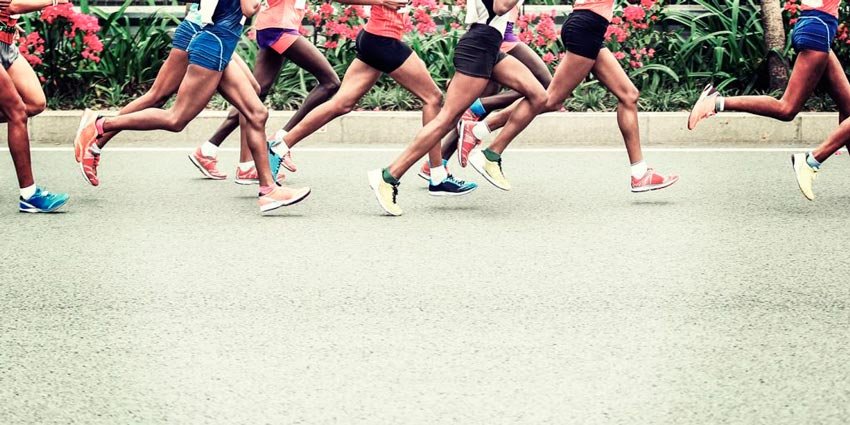It’s reaching the finish line of a marathon, and some runners might swear to never run again. But when all is said (and done), many competitors end up getting bitten and can’t wait to train for the next big race. But be careful! Before running again, marathon runners have to allow their bodies to recover from the tremendous physical achievement of running 26 miles. Today we tell you how much time your body needs to recover after a race, as well as tips to improve recovery and return with maximum performance.
What is the secret formula?
Immediately after a long-distance run, studies show that the efficiency with which the body uses oxygen is severely affected. Although it seems that the bad situation has already passed, your body still has a hard time maintaining itself and recovering damaged muscles.
Although myths like “take a day of rest for every mile traveled” persist, there is no science to back them up. Some experts, however, recommend resting for three to seven days after a marathon to allow the muscles to recover, before gradually resuming walking again. The reason for this range? Muscle recovery varies greatly depending on each person, the way muscles react to stress differs from person to person. For the most part, runners can expect discomfort in the recovery cycle set at approximately 24 to 48 hours after the race, peaking at 72 hours later before tapering off. The key: allow the muscles to fully recover, adequately tending to new or persistent injuries (doctor’s orders!), and, once the body is well prepared, we can return to the asphalt in good physical shape.

Your action plan
It may be tempting to relax for a while after completing a marathon, of course, you’ve earned that right! But for those who can’t wait to run again (or at least walk normally instead of limping), there are more than a few scientifically proven ways to speed up your recovery:
1. Train wisely
The better the preparation, the smoother the recovery. If the distance and pace of the race are comparable to what is done in training, the muscles will probably already be adapted to that level of stress, minimizing tears and soreness.
2. Release your muscles
To practice cheaply yourself, try a foam rolling which will help relieve accumulated muscle tension and increase flexibility. A golf or tennis ball can also help you in difficult situations.
3. Eat well
To help your muscles recover as quickly as possible, look for foods rich in protein. By the way! Chocolate milk can work surprisingly well as a recovery drink due to the optimal ratio of carbohydrates and protein. Of course, don’t forget to drink plenty of water to stay hydrated.
4. Ice, ice!
The pros do it, why not you? It may sound brutal, but immersing your legs in an ice bath has been shown to significantly reduce muscle soreness and help maintain strength and flexibility.

5. Commit yourself
These days, many distance runners wear tight-fitting clothing before, after, and even during a race. No, the 80s are not back, those neon knee-high socks are a form of compression garments, which can reduce pain and inflammation.
6. Get low impact
Whenever you return to physical activity again, look for low-impact options. The great expert Andrew Kalley puts swimming in the top 1 of the exercises to do in this post-race regime since there is “no impact on the body and the water calms the muscles.” Another way to continue on the path to recovery: is a simple ride on a stationary bike. “This will get your legs moving again and new blood circulating to the area, which will speed up recovery,” says Kalley.
As with training, the trick to complete muscle recovery is finding what works for you. Each person’s body is unique and may react differently to various post-race routines. It’s all up to you to find the winning combination and run with it!
Share this content:
